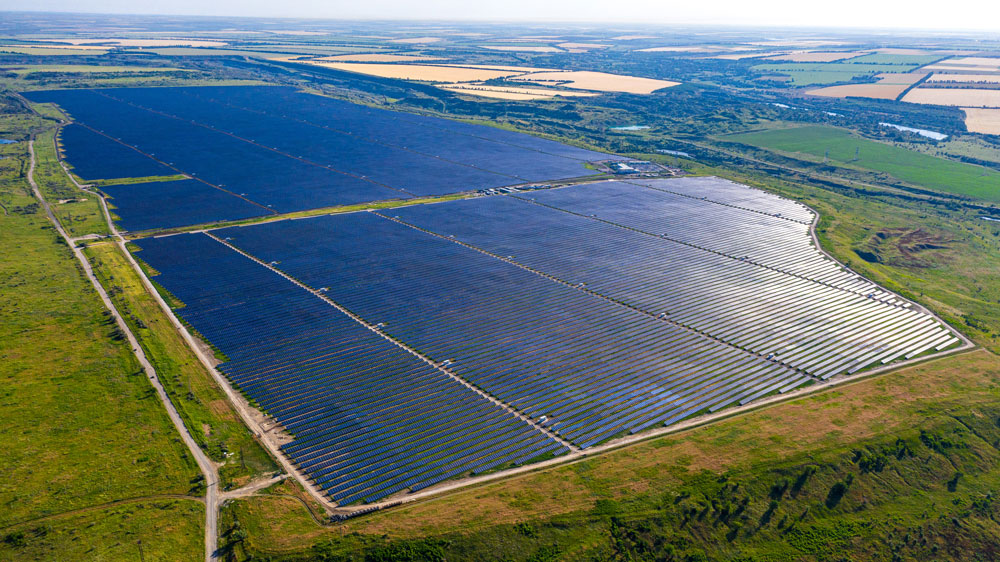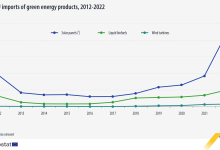Ukraine’s Strategy: Key Priorities for Decarbonisation
When people think about energy in Ukraine, they don’t tend to think about renewable energy. But they really should. The country has formidable potential when it comes to renewable energy production – equivalent to 68.6 million tons of oil per year – and is one of the fastest growing renewable energy markets in Europe.
To understand the full extent of the changes taking place in the Ukrainian renewable energy sphere though, it is important to understand the wider context of the country’s energy system. With outdated, soviet-era infrastructure, the system has traditionally been characterized by inefficiencies. It has also been heavily reliant on nuclear power sourced from its Russian neighbour.
The enormous amount of renewable energy potential has largely gone untapped, with Ukraine instead being more concerned with keeping the system operating than considering its wider environmental impact. Thankfully, that situation has changed for the better over recent years.
The decarbonisation of the energy sector has now become a major strategic objective for Ukraine, as it seeks to gain total energy independence and meet its international obligations under the Paris Agreement and towards the European Union.
Launched in 2017, Ukraine’s 2035 Energy Strategy has committed the country to achieving the following inter-related objectives: increasing of the share of renewables in the total energy mix to 8% by 2020 and 25% by 2035; decreasing gas imports to 0% by 2035; and driving real advances in energy efficiency.
The liberalisation of the energy market is absolutely fundamental to Ukraine’s decarbonisation efforts. The introduction of genuine competition into the sector will increase the ability of domestic energy companies to invest in energy infrastructure, including grid, efficiency and renewable energy.
Since 2015, EUR 4.9 billion of investments, of which EUR 3.7 billion was raised in 2019, have been directed towards clean energy facilities, according to the State Agency on Energy Efficiency. The rapid development of renewable energy production has been promoted by a ‘green’ tariff, which has led to the completion of renewable energy projects, covering solar, wind, biomass, hydroelectric and geothermal. This has created a strong incentive for renewable energy investments and has enabled Ukrainian businesses to work in partnership with some of the world’s foremost renewable energy companies.
In the case of DTEK, we have now invested EUR 1.2 billion in renewable energy, with 950 MW in installed wind and solar generation capacity, which has seen us enter partnerships with companies such as GE and Vestas.
The stats around Ukraine’s renewable energy production reflect its market leading growth rates. In 2018 the capacity of renewable energy increased by 60% – one of the highest rates in Europe, while in 2019, a growth of 198% was recorded, bringing it to a total of 6 gigawatts. Despite the progress that has been made, there can be no room for complacency and much more needs to be done if we want this progress to be maintained.
Ukraine is currently one of the least energy efficient countries in Europe. The energy intensity of Ukraine’s industrial sector is more than four times higher than the average indicator across EU countries. By reducing our energy intensity level to that of our EU counterparts, we will enhance the competitiveness of our domestic goods.
Another stream is creating a smart grid. Long-term neglect has resulted in an energy grid which has reached 80% wear and tear and requires a nation-wide upgrade and new investments over the coming years.
International Financial Institutions have an important role to play in plugging this finance gap. But this cannot be achieved without a substantial increase in private sector investment, and we need to be more creative and flexible in terms of how this is obtained. With this in mind, DTEK has launched Ukraine’s very first green bond.
We also need to be very conscious of the fact that the process of decarbonisation is not pain free. Shifting from fossil fuels to more sustainable energy sources may negatively impact communities that are currently dependent on, for example, coal mining or thermal power stations that are beyond renovation. This is certainly a situation we will face in Ukraine.
Achieving a just transition must be a key priority and central to Ukraine’s decarbonisation strategy. We have to ensure that affected communities do not become the victims of decarbonisation and that they are provided with the support they need to reskill and create new business opportunities. Achieving a just transition will be challenging, and can only be delivered through active partnership, and close collaboration with all relevant actors.
The case for decarbonising Ukraine’s energy system is a compelling one, and as a country we are blessed with massive potential when it comes to renewable energy. We have already put the foundations in place for delivering against this objective.
DTEK is committed to building on this progress and accelerating our transition towards a more sustainable energy system, and to ensuing that when people think of Ukraine in the future, they think of us as market leaders in renewable energy.







